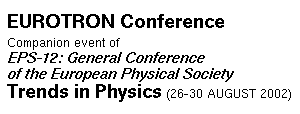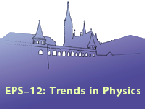 |
 |
 |
Particle Physics, astrophysics and cosmology have advanced in parallel to produce what could be called a standard model of the Universe, but recent observations have raised very fundamental questions about the early stages of the Universe and its fundamental composition in terms of matter and energy. It is generally accepted that the next generation of accelerators and detectors required to probe physics ‘beyond the Standard Model’ will require a changed paradigm, from national or regional facilities exploited internationally to inherently global projects, fundamentally different in their basic organizational concepts. Global projects are not new to science, but building a major new facility which will be open to researchers on a global scale is a new undertaking which poses questions which can only be addressed at governmental level.
The OECD Global Science Forum (GSF) established the High Energy Physics (HEP) Consultative Group (CG) in June 2000 to exchange views on the future direction of HEP, particularly as regards large facilities, examine the rationale behind programme priorities and strategies, look at common or generic issues and approaches, and identify and discuss relevant organization and managerial issues. It reported to the GSF in June 2002.
The report states that “the Group was impressed by the range and depth of the studies carried out by the world-wide HEP communities in setting out the scientific and programme priorities over the next decade and beyond, and by the degree of unanimity between the communities in all regions” and that “the Group found the scientific arguments presented by the communities to be compelling. “
A wide range of organisational and managerial issues associated with the creation of a major new international facility were studied. These are all areas where work will be required of the proposers of such projects and the participating governments. Specific issues highlighted in the discussion included: legal structure, financial arrangements, managerial structure, reporting and accountability, host nation and host laboratory. A key issue that is already exercising the communities is the mechanism whereby international negotiations on the next steps towards a linear collider can be started. The Group looked at the ways in which community driven initiatives offering different technological approaches to common scientific objectives might be reconciled to converge on a global consensus and, ultimately, funding decisions.
The following files are available:
- abstractcorbett.pdf [9490 bytes]
- abstractcorbett.doc [23040 bytes]
Eurotron Conference is supported by European Commission, High-Level Scientific Conferences